A Republican party split in two
- Published
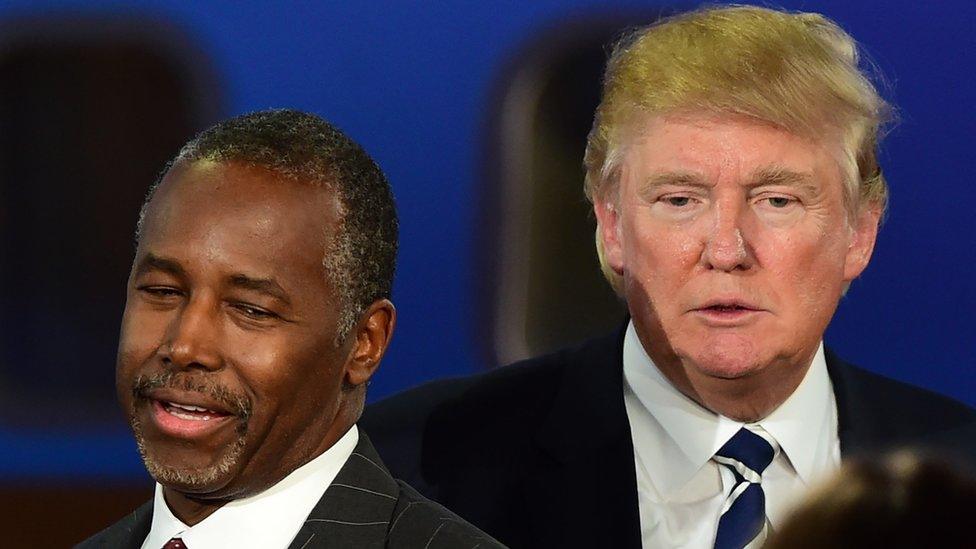
For the chieftains of the Republican Party, Campaign 2016 has hardly gone to script.
A loud-mouthed billionaire encouraged by his poll numbers to believe he can insult his way to the White House has up until this week dominated the battle for its presidential nomination.
As for Donald Trump's most recent rival, the retired neurosurgeon Ben Carson, who this week topped his first national poll, he has a tendency to speak like doctors commonly write, which is to say his words are often mumbling and almost unintelligible.
Despite a soothing bedside manner, he also has a tendency to make jolting statements, such as that Obamacare was worse than the attacks of 9/11 and abortion is like slavery.
It must be a huge concern for the GOP high command that Trump and Carson, supposed fringe candidates, are attracting the support of roughly 50% of the Republican base, and that no other contender comes even close.
Establishment favourites, like Jeb Bush, have struggled to make much of an impression, precisely because they are seen as establishment favourites in a party that is increasingly and defiantly anti-establishment.
The nerdy secretary of the high school stamp collecting club to Trump's football captain, Bush is struggling to find his voice and even to explain his candidacy. It heightens the sense that he is running out of a sense of dynastic entitlement.
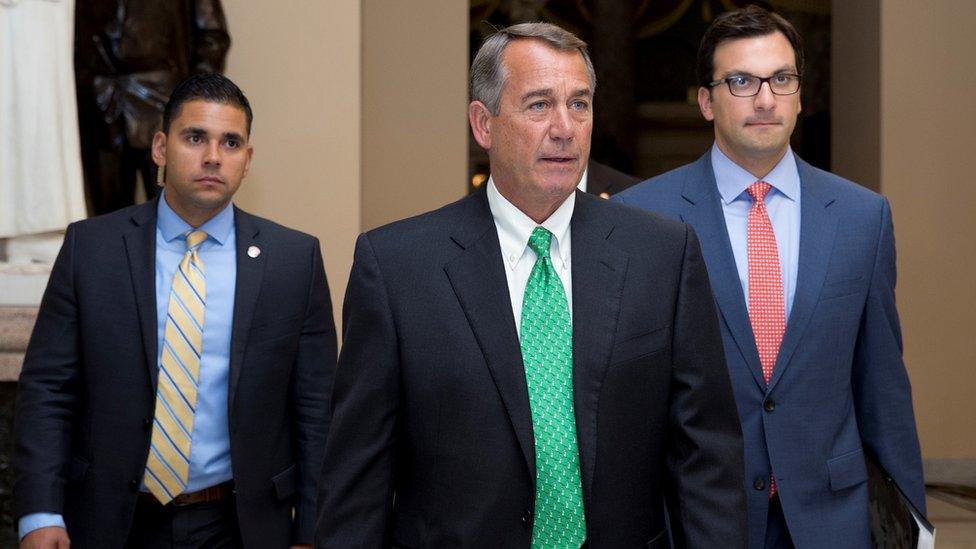
John Boehner resigned after years of difficult negotiations with more conservative members of his party
Away from the campaign trail, on what should be the sunny uplands of Capitol Hill, the Republicans have been in chaos. For party elders, filling the House speakership, a job commonly regarded as Washington's second most powerful, has been just as tortuous as selecting a presidential nominee.
The Freedom Caucus, a rump of 40 or so ultra-conservatives, not only forced John Boehner from the job, but barred his obvious successor, Kevin McCarthy, from being promoted.
Instead, the apparent winner is Paul Ryan, Mitt Romney's running mate from 2012, who has promised to show what a "common sense conservative agenda looks like".
But common sense is in short supply in the modern Republican Party, where ideologues have displaced pragmatists.
In a measure of how far the party has lurched to the right, Ryan is regarded by many Tea Party figures as dangerously moderate. To them, common sense equates to ideological betrayal. Little wonder Ryan was so reluctant to put himself forward for the post.
With majorities in both houses of Congress, the Republican Party should be in the ascendant. Not only did it sweep last year's congressional mid-term elections, its domination of the House of Representatives, where it has 247 seats compared to the Democrats' 188, should continue after next year's races.
Republicans also occupy 31 of America's 50 governorships. After eight years of the Obama administration, the party should be well placed to regain the White House, if only because of the cyclic nature of politics and the natural appetite among electorates for change.
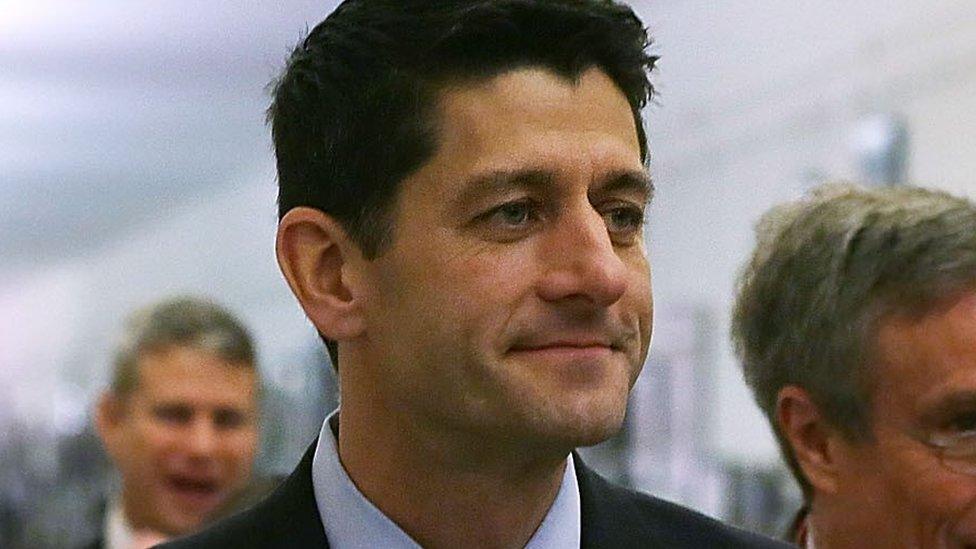
Paul Ryan - conservative stand out or dangerously moderate? Depends on which wing of the Republican party you speak to
But the Republican's traditional nickname, the Grand Old Party, now sounds oxymoronic. Its nominating contest and congressional caucus could hardly be described as grand. At times both have been farcical.
Nor does it look like a properly functioning party. So intense and visceral has become the Republican Party's mistrust and hatred of government, it has almost itself reached the point of ungovernability. As David Brooks, a conservative columnist with the New York Times, astutely observed, modern-day Republicans are marked more by right-wing radicalism than traditional conservatism.
"Republicans came to see themselves as insurgents and revolutionaries, and every revolution tends toward anarchy and ends up devouring its own," he writes, external.
With the schism between pragmatists and ideologues ever harder to breach, the Republicans are in danger of becoming what the Democrats were in the 1970s and 1980s - a party that could win majorities on Capitol Hill, but which suffered a virtual lock-out at the White House.
Between the late-Sixties and early-Nineties, the Democrats won just one presidential election, in 1976 with Jimmy Carter - and that was with the winds of Watergate at their back.
During that unsuccessful era, the Democrats were cast by their opponents as the party of the hippy left, the home of angry African-Americans, radical feminists and anti-war demonstrators. In other words, a protest movement.
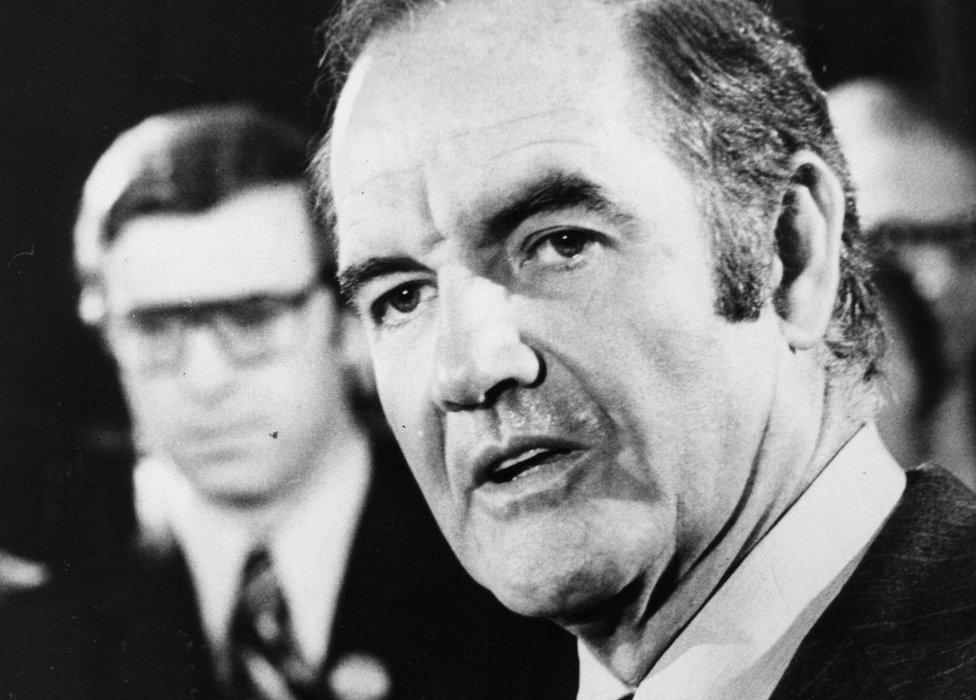
George McGovern's 1972 campaign failed but Democrats kept majorities in Congress
Large factions of the party operated outside of the mainstream, what Richard Nixon called the "silent majority". As Senator George McGovern discovered in 1972, winning the party's presidential nomination, which meant reaching out to leftist constituencies, and winning the White House, which meant moving back towards the middle, required too great a political leap.
He lost 49 out of 50 states (Massachusetts bucked the trend), but Democrats maintained their majorities in both the House and Senate.
In many ways, the radical right is to the GOP in 2015 what the hippy left was to the Democrats in 1972. It hasn't stopped them dominating Congress, but it has made it difficult for them to get the keys to the White House.
The GOP looks more and more like two antagonistic cabals - an establishment party represented by figures like Bush, Marco Rubio, John Kasich and Chris Christie, and an insurgent movement headed by the likes of Ted Cruz and Carson.
Again, there are parallels with the Democrats of old, a party that for much of the last century was an unhappy amalgam of northern progressives and southern segregationists.
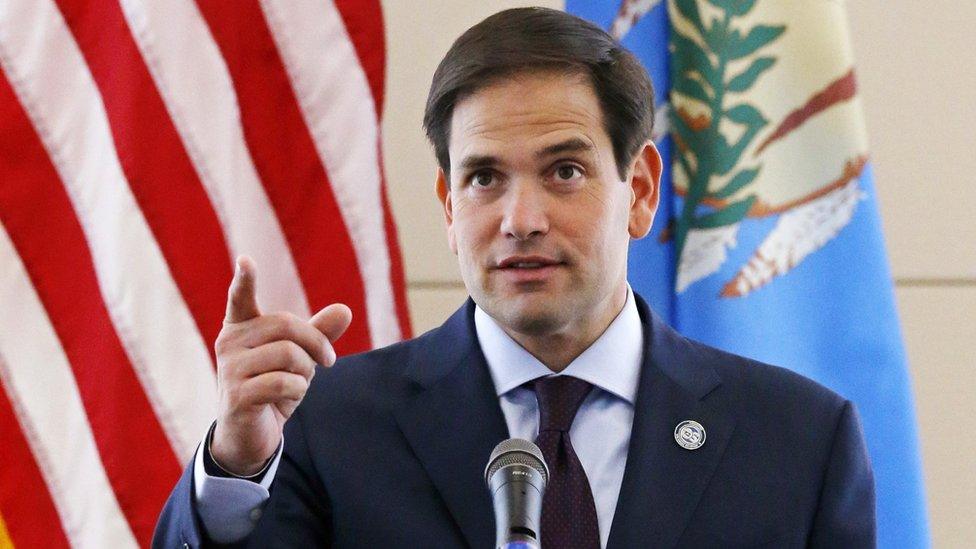
Is the Republican party's future Marco Rubio?
The Democrats came up with a solution to this problem that kept them viable in presidential politics - they soft-pedalled civil rights, the defining issue that divided them.
But when Lyndon Johnson signed the 1964 Civil Rights Act into law, he knew he had written off what was then called the solid Democratic south, and also that white southerners would flock to the Republicans, even though it was the party of Abraham Lincoln.
The modern-day GOP is finding it harder to square the circle between its radical and more traditional wings, even though the issues that divide them, such as immigration, are nowhere near as stark, or historically charged, as segregation.
Since the civil rights era of the 1960s, the Republicans' success in presidential politics has been built on the "southern strategy", an appeal to whites disgruntled with the speed of racial change.
Richard Nixon, Ronald Reagan and George Herbert Walker Bush all pursued variations on this theme. But the southern strategy has become obsolete, because of the demographic changes that have overtaken a country where the majority of children under five are now non-white.
Back in 1968, when Richard Nixon coined the phrase "the silent majority" whites without a college degree represented 80% of voters. By 2012, that figure was down to 44%.
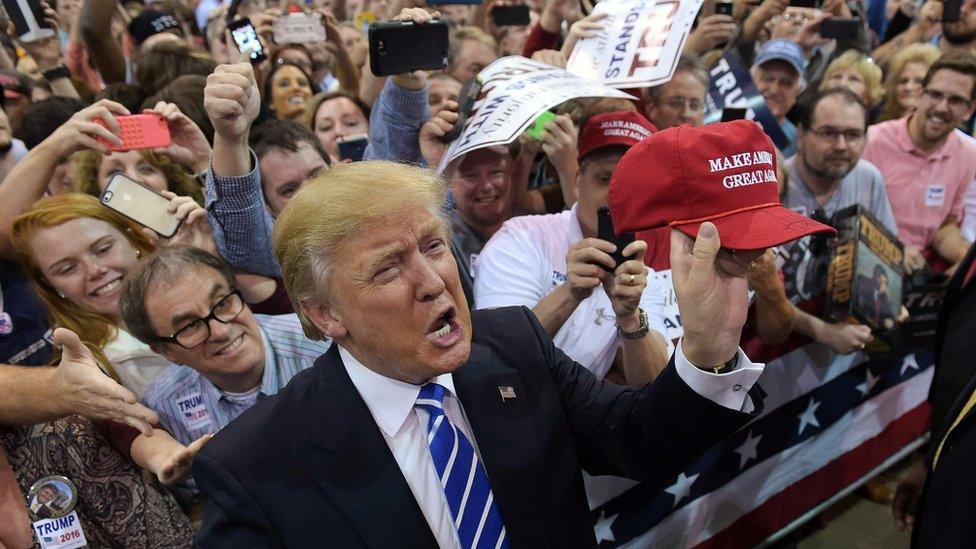
... or Donald Trump?
While the support of blue collar whites has buoyed Donald Trump in the polls and given him a shot at winning the Republican nomination, it cannot, on its own, lift him to the presidency.
Moreover, his appeal has waned. Many of the viewers who turned up the volume in the early days of his candidacy when Trump appeared on screen are now turning it down.
Party chieftains this year hoped to broaden the demographic appeal of the party. It explains why Spanish-speaking Jeb Bush and Marco Rubio are establishment favourites.
But this year's race has so far been dominated by outsiders - Trump and Carson. The problem for the GOP is that they, like much of the party, may also be outside the new American mainstream.